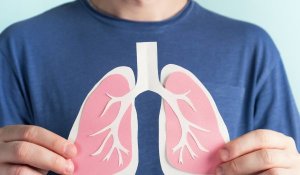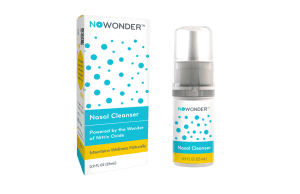 Men’s Health Week, from June 9 to 15, 2025, aims to raise awareness of health issues that can be prevented and encourages men to get checked early for diseases. It’s a chance for healthcare professionals, policymakers, the media, and individuals to remind men to visit their doctor regularly and take care of their health. Every year, there are hundreds of events in the US and around the world to spread this message.
Men’s Health Week, from June 9 to 15, 2025, aims to raise awareness of health issues that can be prevented and encourages men to get checked early for diseases. It’s a chance for healthcare professionals, policymakers, the media, and individuals to remind men to visit their doctor regularly and take care of their health. Every year, there are hundreds of events in the US and around the world to spread this message.
Growing up, my dad never would have gone to a doctor or dentist without my mom pushing him to make those appointments. This isn’t uncommon. Studies show men are less likely than women to seek medical care or attend routine checkups. Unfortunately, this means they’re often at higher risk of complications from illnesses that can be managed effectively with early intervention. Men’s Health Week is a critical reminder of why prioritizing health now can save lives later.
What are the main diseases that affect men?
High blood pressure
High blood pressure, or hypertension, is a serious condition that can lead to problems like strokes, heart disease, heart failure, and kidney disease. Men are more likely than women to have high blood pressure that isn’t managed. This condition can cause harm to the body for years without showing any symptoms. If it’s not treated, high blood pressure can result in life-threatening events like heart attacks or strokes.
How preventative care can help
How preventative care can help
Regular checkups are important for keeping the heart healthy. Doctors can figure out a person’s risk for heart disease by looking at things like cholesterol, blood pressure, and whether they smoke, and suggest strategies for early intervention, which may include lifestyle interventions or medication such as:
- Angiotensin-converting enzyme(ACE) inhibitors, which include Vasotec, Zoprotec, Vasodip Combo, or Altace.
- Angiotensin II receptor blockers (ARB), which include Diovan, Edarbi, Edarbyclor, Cozaar, Atacand, Hyzaar, Entresto, or Avapro.
Starting blood pressure medication early helps control blood pressure more effectively and can also lower the risk of heart and blood vessel problems over time.
Respiratory diseases
 Respiratory diseases often begin with what seems like a harmless but chronic cough. However, over time, this cough can develop into serious health problems like lung cancer, emphysema, or Chronic Obstructive Pulmonary Disease (COPD).
Respiratory diseases often begin with what seems like a harmless but chronic cough. However, over time, this cough can develop into serious health problems like lung cancer, emphysema, or Chronic Obstructive Pulmonary Disease (COPD).
The American Lung Association reports that lung cancer is being diagnosed in more men than women each year. While workplace dangers like asbestos can raise the risk, smoking is still the main cause of lung cancer. People who have been smoking for over 30 years might want to consider getting a low-dose CT scan to check for lung cancer.
How preventative care can help
Respiratory illnesses like COPD are often progressive, which means they get worse over time. However, with early detection and proper treatment, it is possible to slow down the progression of these diseases and improve quality of life. This can be done with lifestyle adjustments such as quitting smoking, and medications such as long-term inhalers like Advair, Simbicort, Breo Ellipta, Anoro Ellipta, Trelegy Ellipta and Spiriva to improve breathing.
Prostate cancer
Prostate cancer is one of the leading cancers among men, with over 150,000 new cases being diagnosed each year. While there are no definite causes of prostate cancer, there are certain risk factors that can increase a person’s chances of developing it, such as family history.
How preventative care can help
 Early detection through regular check-ups and screenings can greatly improve survival rates for prostate cancer by catching it when it is benign. Testing for prostate cancer is recommended for all men over the age of 50, or earlier for those with a family history of the disease. Screening tests are very simple and include a digital rectal exam and a prostate-specific antigen (PSA) blood test. There are various treatments for prostate cancer such as surgery, chemotherapy, radiation therapy, and androgen deprivation therapy (ADT), with medications such as Zytiga and Erleada, which help lower testosterone levels in the body.
Early detection through regular check-ups and screenings can greatly improve survival rates for prostate cancer by catching it when it is benign. Testing for prostate cancer is recommended for all men over the age of 50, or earlier for those with a family history of the disease. Screening tests are very simple and include a digital rectal exam and a prostate-specific antigen (PSA) blood test. There are various treatments for prostate cancer such as surgery, chemotherapy, radiation therapy, and androgen deprivation therapy (ADT), with medications such as Zytiga and Erleada, which help lower testosterone levels in the body.
Alcohol related deaths
The Centers for Disease Control (CDC) reports that men have considerably more alcohol-related deaths and hospital visits than women. They are also twice as likely to binge drink. Aside from injury and death relating to incidents under the influence of alcohol, drinking alcohol can also raise the chances of getting cancers in the mouth, throat, esophagus, liver, and colon. It can also affect how the testicles work and disrupt hormone levels, which may lead to problems like infertility or impotence.
How preventative care can help
Alcohol use disorder may require specialized treatment, but a doctor is able to point patients towards support groups or resources if needed. Regular check-ups and screenings can help detect any potential health issues early on and allow for prompt treatment. This includes screening for alcohol use disorder, as well as screenings for related conditions such as liver disease or cancer.
Depression and suicide
According to researchers at the National Institute of Mental Health (NIMH), the suicide rate of men is almost four times higher than that of women. Men are less likely to seek help for mental health issues for various reasons, such as societal expectations of masculinity and fear of being perceived as weak. However, preventative care can help reduce the risk of developing depression and provide necessary support for those who are struggling.
How preventative care can help
Men who seek help for mental health issues are far less likely to experience depression and have a lower risk of suicide. Preventative care can include therapy, support groups, and medication management to help individuals cope with stressors and underlying issues that may contribute to depression. Regular check-ups can also screen for potential physical health concerns that may be contributing to mental health struggles.
Skin cancer
The Skin Cancer Foundation reports that men make up the majority of melanoma deaths, which was more than double the rate for women. Most of these deaths were men over the age of 50. Men are less likely to take preventative measures such as wearing sunscreen and getting regular skin checks from a dermatologist.
How preventative care can help
Regular skin cancer screenings with a dermatologist can catch any potentially harmful spots early on, increasing the chances of successful treatment. Any spots on the skin that change in size, shape, or color should also be checked by a professional. In the US, the 5-year survival rate for melanoma is 99% when detected early.
HIV and AIDS
Many men with Human Immunodeficiency Virus (HIV) might not know they have it because the early symptoms can feel very mild, like a cold or flu. According to the CDC, men make up the vast majority of people living with HIV. Most of the new and existing HIV cases are found in men who have sex with other men.
How preventative care can help
HIV treatment has come a long way, and the condition can now be managed well with antiretrovirals and PrEP. Antiretrovirals work by preventing the virus from multiplying in the body and reducing its levels, essentially preventing the virus from progressing. PrEP works by reducing the risk of contracting HIV in the first place. Both of these treatments are highly effective when used correctly. This not only benefits your own health but also helps prevent transmission of the virus to others. HIV testing is an important first step to getting care, like PrEP for people who don’t have HIV and treatment for those who do. Testing programs have played a big role in reducing HIV infections, which went down by 12% from 2018 to 2022.
Diabetes 
If not managed properly, diabetes can cause serious health problems like nerve and kidney damage, heart disease, strokes, and even vision loss or blindness. Men with diabetes may also have lower testosterone levels, which can lead to issues like sexual problems. These challenges can increase the chances of feeling anxious or depressed. For those with a family history of diabetes, the American Diabetes Association advises getting regular check-ups and screenings from a doctor.
How preventative care can help
If risk factors for diabetes are addressed early enough, it is possible to prevent or delay the onset of diabetes. This can be achieved through regular exercise, maintaining a healthy weight, and eating a well-balanced diet that limits sugar intake. Following these preventative measures can also help manage existing cases of diabetes and reduce the risk of complications. For those struggling with weight loss, medications like Wegovy are now FDA-approved to assist in weight management as well as blood sugar regulation.
Influenza and pneumonia
Flu and pneumonia are two major health risks for men. Men with weaker immune systems, especially those with conditions like COPD, diabetes, heart failure, sickle cell anemia, AIDS, or cancer, are more likely to get sick from these infections and may end up seeking emergency medical treatment too late.
How preventative care can help
According to the American Lung Association, men have a 25% higher chance of dying from these illnesses than women. To help protect against the flu and pneumonia, they recommend getting vaccinated. It is also worthwhile to have a doctor monitor any cold and flu symptoms if someone is at high risk of complications.
Tips to help men improve their physical and mental health
 Seek help for mental health
Seek help for mental health
Many people think that men avoid asking for help with mental health problems or sharing their feelings, especially when dealing with things like anxiety or depression. Psychological help should be seen as a way to feel stronger and more empowered, not as something to be ashamed of.
Get moving
Staying active helps lower the risk of dying from heart disease and cancer. It’s also a great way to manage weight, cholesterol, and blood pressure. According to the World Health Organization (WHO), adults should aim for at least 150 minutes of moderate exercise or 75 minutes of intense exercise each week.
Take care of your ticker
There are a few important things men can do to take better care of their hearts.
- Attend regular doctor check-ups to catch health risks early.
- Eat healthy to avoid weight gain and reduce the risk of diseases linked to heart problems.
- Stay active, especially with resistance training like weightlifting, to lower heart risks.
- Manage emotions and stress using mental health strategies.
- Follow the doctor’s advice and continue taking any prescribed medications.
And finally, don’t forget oral hygiene!
Dentistry isn’t just about taking care of teeth. Oral health is closely connected to overall physical and mental health. If someone has poor oral health, it can lead to serious problems like heart attacks, strokes, heart disease, diabetes, and obesity. Tooth decay and gum disease are the two most common oral health problems. These issues are closely linked to people’s daily habits and lifestyles, including their diet, smoking, stress levels, and how often they visit the dentist. It is recommended to have regular dental check-ups to catch any oral health issues that might need treatment from a dentist.
FAQs
Do men take care of their health?
Men and women tend to approach health differently. Men are less likely to take care of their health or visit a doctor. According to the U.S. Agency for Healthcare Research and Quality (AHRQ), men are 25% less likely than women to see a healthcare provider in a year.
How many men suffer from mental health?
In the U.S., about six million men deal with depression every year. Men are also four times more likely to die by suicide than women. Alcohol-related deaths affect men more too, with 62,000 men dying each year compared to 26,000 women. Men are also two to three times more likely to misuse drugs than women. These statistics show that men are less likely to seek help and more likely to rely on dangerous coping methods.
How to support men’s mental health?
Recognising mental strain is vital. Common signs include withdrawing socially, changes in sleep, irritability, or persistent physical symptoms like headaches and fatigue. Starting conversations about emotions can feel tough, but honesty matters. Simply saying, “You don’t seem yourself. Are you ok?” can open doors. Don’t wait for the perfect time; just start, and follow up with support. Encourage seeking professional help, joining support groups, and nurturing physical health through exercise, rest, and mindfulness. Remind others it’s ok to feel their emotions without judgment.
What are the signs of prostate problems in men?
Prostatitis symptoms may include:
- Pain in the area between the anus and scrotum, which can get worse if you sit for a long time.
- Pain in the pelvis, genitals, lower back, or buttocks.
- Pain or burning when you pee.
- Needing to pee often.
- Trouble starting to pee or having a weak stream.
- Pain during ejaculation.
What is normal blood pressure for a male?
For most adults, normal blood pressure means having a top number (systolic) below 120 and a bottom number (diastolic) below 80.
What are the symptoms of diabetes in a man?
Although diabetes symptoms can differ slightly between men and women, many signs are the same for both. Common symptoms include:
- Feeling very thirsty or hungry all the time
- Needing to pee often (sometimes due to urinary infections or kidney issues)
- Losing or gaining weight unexpectedly
- Feeling tired all the time
- Being easily irritated
- Having blurry vision
- Cuts or wounds that take a long time to heal
At what age do most men get diabetes?
Type 2 diabetes is the most common type of diabetes. It usually develops in people between the ages of 45 and 64, but it can happen at any age. Since every person is different, it’s hard to say an exact age when type 2 diabetes might start.













